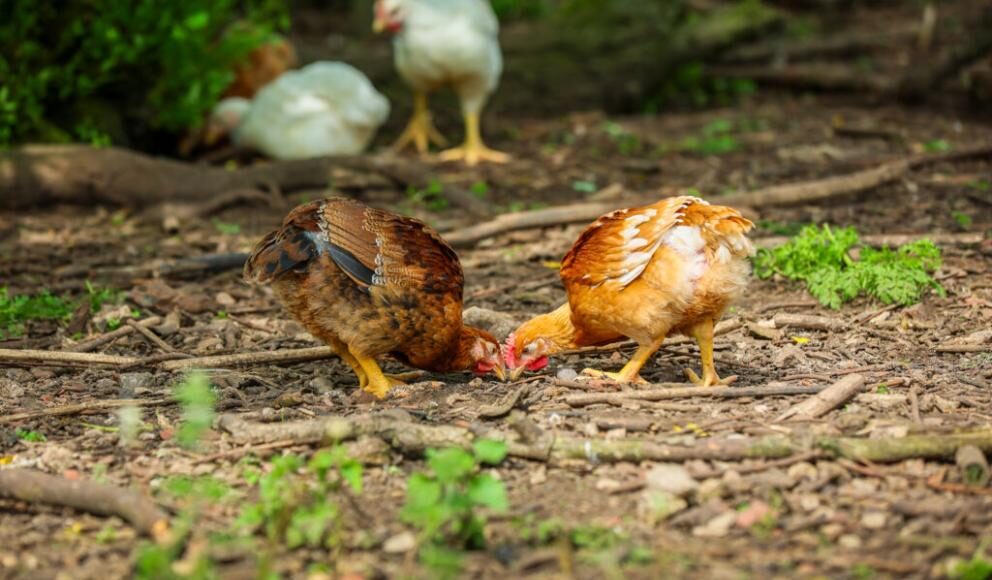Chickens are delightful companions on any homestead or farm, providing fresh eggs and a sense of rural charm. To keep them healthy and productive, it’s crucial to ensure they have a balanced diet. One way to enhance their diet is by introducing probiotics. In this article, well explore how to make probiotics for chickens at home and why its beneficial for your flock.

Understanding Probiotics
Probiotics are live microorganisms that offer health benefits when consumed. They are known to promote a healthy gut by balancing the bacteria in the intestines. This is as true for chickens as it is for humans. By introducing probiotics into your chickens’ diet, you can improve their digestive health, boost their immune system, and enhance their overall well-being.
Why Chickens Need Probiotics
Just like in humans, a healthy gut is essential for chickens. The benefits of probiotics include improved digestion, enhanced nutrient absorption, and a stronger immune system. Probiotics help in reducing the harmful bacteria in the gut, ensuring your chickens stay healthy and productive.
Ingredients Needed
Creating probiotics at home for your chickens is simple and requires only a few ingredients that are often readily available:
- Plain yogurt or kefir
- Apple cider vinegar
- Garlic
- Fermented grains
Using Yogurt and Kefir
Yogurt and kefir are rich in beneficial bacteria. You can mix a small amount of plain yogurt or kefir into your chickens’ feed. This not only provides a source of probiotics but also offers calcium, which is essential for laying hens.
Apple Cider Vinegar
Apple cider vinegar is another excellent source of probiotics. Add a tablespoon of apple cider vinegar to a gallon of water and offer it to your chickens. This will help maintain a healthy gut flora and aid in digestion.
Garlic: A Natural Booster
Garlic is known for its antimicrobial properties. Adding crushed garlic to your chickens’ feed can help in managing harmful bacteria while promoting the growth of beneficial bacteria.
Fermented Grains
Fermenting chicken feed is a great way to introduce probiotics. Simply soak grains in water for a few days, allowing them to ferment. This not only introduces probiotics but also increases the nutritional value of the feed. For more on this, check out our detailed guide on fermenting chicken feed.
Steps to Make Probiotics at Home
Now that we have our ingredients, lets look at the steps involved in making probiotics for your chickens:
Step 1: Choose Your Base
Select a base for your probiotics. This could be yogurt, kefir, or fermented grains. Ensure that the yogurt or kefir is plain and unflavored.
Step 2: Mix Ingredients
In a large bowl, mix your chosen base with a tablespoon of apple cider vinegar and a clove of crushed garlic. Stir well to ensure all ingredients are combined.
Step 3: Ferment
If you are using grains, allow them to sit in water at room temperature for 48 hours to ferment. This will enhance the probiotic content.
Step 4: Serve
Mix the probiotic mixture with your chickens’ regular feed. Start with small amounts to allow your chickens to get used to the new diet.
Benefits of Home-Made Probiotics
Making probiotics at home has several advantages. It’s cost-effective, allows you to control the quality of ingredients, and ensures that your chickens are getting a natural and healthy supplement.
Cost-Effective Solution
Commercial probiotics can be expensive. By making your own, you save money while providing your chickens with high-quality nutrition.
Natural and Safe
By using natural ingredients, you minimize the risk of harmful additives and ensure that your chickens are consuming a safe product.
Monitoring Your Chickens Health
Once you start introducing probiotics, keep an eye on your chickens health and behavior. Look for signs of improved digestion such as more regular droppings and increased activity levels.
Signs of a Healthy Chicken
Healthy chickens will have bright eyes, shiny feathers, and a good appetite. They should also be active and alert. If you notice any changes in these areas, consult a veterinarian.
Adjusting the Diet
If you notice any adverse reactions, such as diarrhea, reduce the amount of probiotics and gradually reintroduce them. It’s important to ensure a balanced diet to avoid any nutritional imbalances.

FAQs
What are the best probiotics for chickens?
The best probiotics for chickens are those that are natural and unprocessed, like yogurt, kefir, and fermented grains.
How often should I give probiotics to my chickens?
Probiotics can be given daily by mixing them with the feed or water. However, it’s important to start slowly and observe your chickens response.
Can too much probiotics harm chickens?
While probiotics are beneficial, too much can cause digestive upset. It’s best to start with small amounts and gradually increase the dosage as your chickens adjust.
For more information on keeping your chickens healthy naturally, check out our article on herbs safe for chickens. Additionally, for treating common chicken ailments naturally, visit respiratory infection treatments.
For a guide on natural products for chickens, you might find this [external link](https://www.naturalanimalhealth.co.uk/blog/top-9-natural-products-for-chickenss) helpful.
This article contains affiliate links. We may earn a commission at no extra cost to you.










